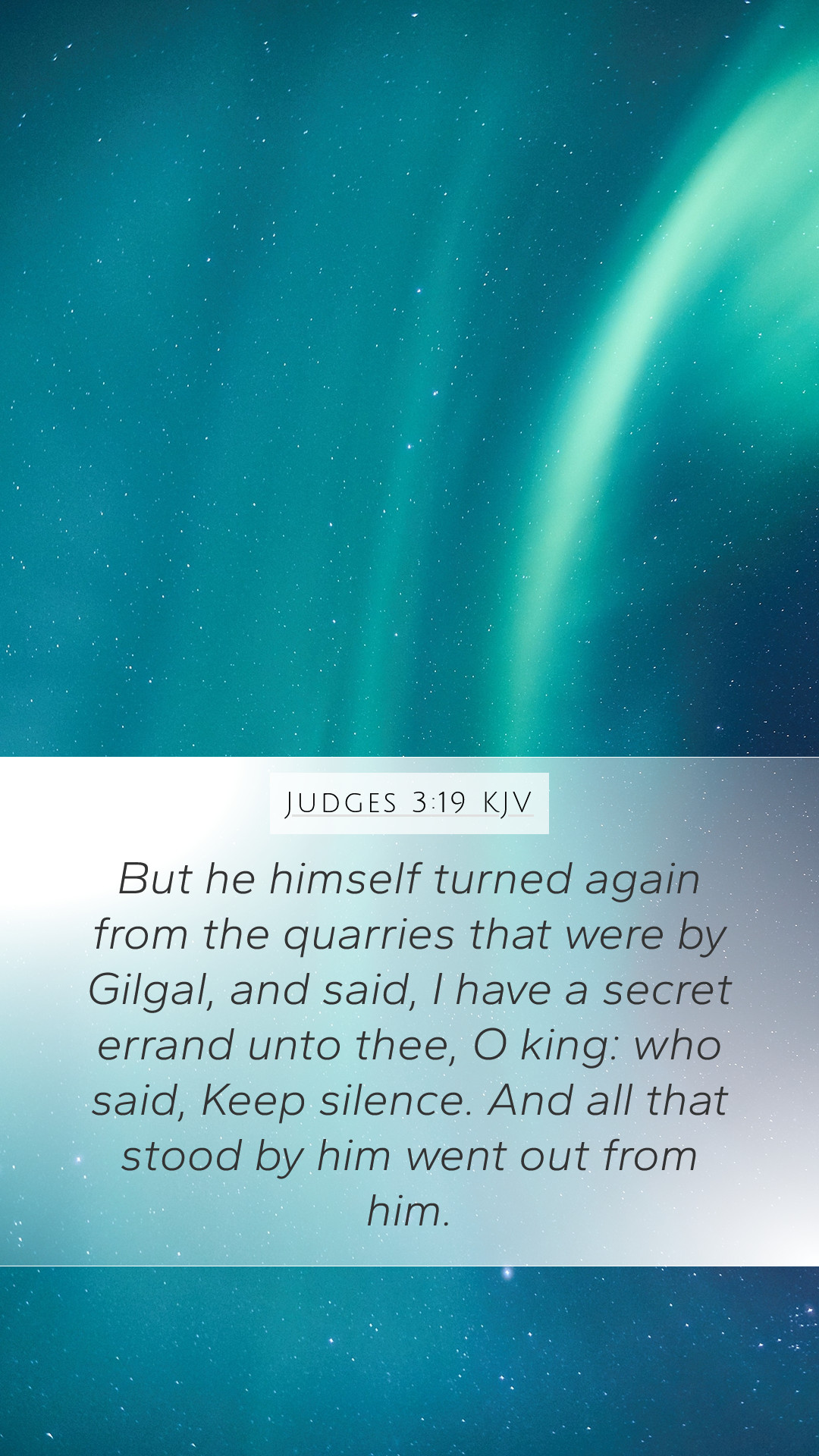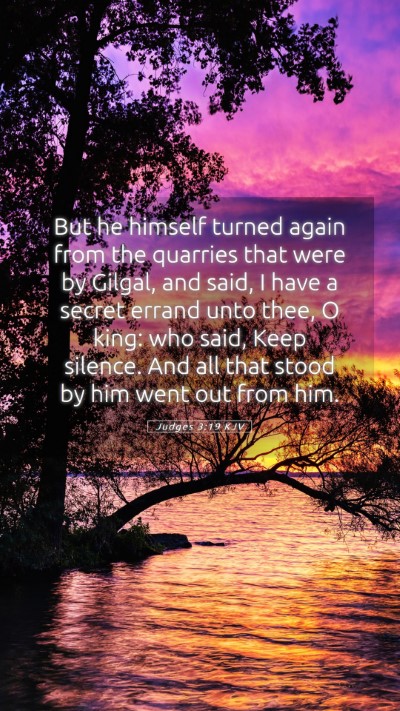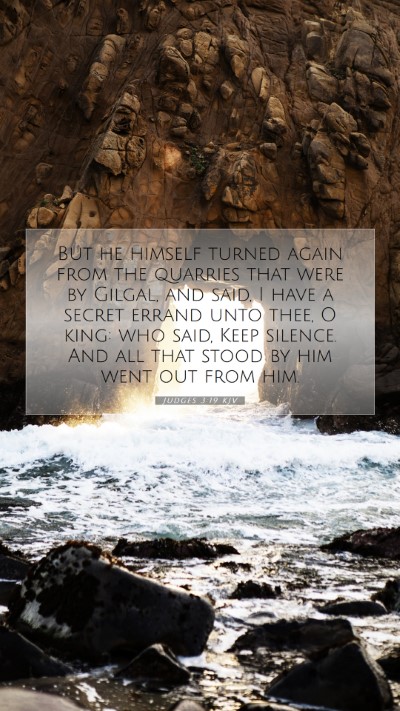Bible Verse Meaning: Judges 3:19
Judges 3:19 states, "But he himself turned again from the quarries that were by Gilgal, and said, I have a secret errand unto thee, O king: who said, keep silence. And all that stood by him went out from him." This verse is part of the account of Ehud, the left-handed judge of Israel, and provides critical insight into the narrative of deliverance.
Understanding the Context
This passage is situated within a larger narrative that details Israel's cycles of sin, oppression, repentance, and deliverance. Here, Ehud is sent by God as a deliverer for Israel from Moabite oppression. The specific events leading to this moment illustrate a combination of courage, cleverness, and divine timing.
Bible Verse Interpretations
- Ehud Tells a Secret: Ehud’s statement about having a "secret errand" is one of cunning and strategy. He understands the significance of discretion in his mission. This illustrates the importance of wisdom and tact when fulfilling God’s purpose.
- Separation for a Purpose: The order for silence and the departure of those standing by suggest a moment of divine appointment. It depicts how God often works in isolation to carry out His plans, highlighting moments of solitude as where God may act powerfully.
- Symbol of Deliverance: This secret mission underscores the theme of deliverance found throughout Judges. It reminds readers that God often uses unexpected means and people to bring about salvation and freedom.
Bible Verse Commentary
Drawing insights from various public domain commentaries:
- Matthew Henry: Reflecting on this verse, Henry emphasizes the divine providence in the events of Judges. The secretive nature of Ehud’s approach showcases God’s methods of bringing hope and redemption through direct intervention against Israel's enemies.
- Albert Barnes: Barnes highlights that this account exhibits God’s care for His people in times of distress and emphasizes Ehud’s cunning as a commendable trait that aligns with God’s will for Israel's liberation. His determination to fulfill God’s mission illustrates a zealous commitment to God's commands.
- Adam Clarke: Clarke discusses the historical backdrop of the Moabite oppression and the significance of Ehud’s left-handedness, which may have played a role in his ability to execute his plan. Clarke views this as an example of how God equips His chosen leaders in unique ways for specific purposes.
Application of the Verse for Bible Study
This verse invites readers to explore themes of discretion, divine intervention, and the unexpected ways in which God operates in our lives. The narrative encourages believers to be watchful for God’s movement and to engage with the Spirit when confronting challenges.
Cross References
- Judges 3:12-14: This passage provides the context of Israel's oppression by Moab.
- Judges 3:20-22: These subsequent verses reveal the outcome of Ehud’s secret mission and God’s deliverance.
- 1 Samuel 16:7: A reminder that God looks at the heart, illustrating how He chooses unlikely candidates for great tasks.
Conclusion
Judges 3:19 serves as a powerful testament to the nature of God's intervention in our lives and circumstances. With its layers of meaning, it encourages deeper analysis and reflection on how one can understand and apply Scripture. Through Bible verse interpretations such as this, believers can gain insights that enrich their faith and strengthen their resolve in following God’s guidance.


